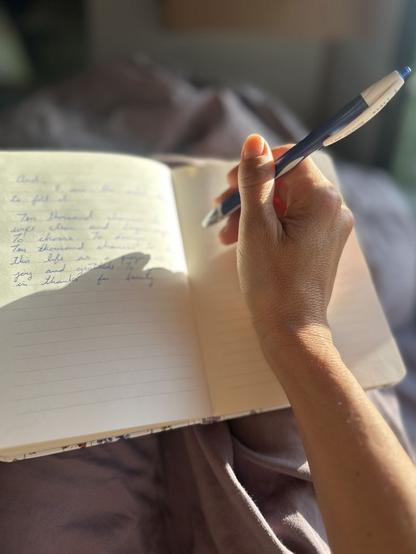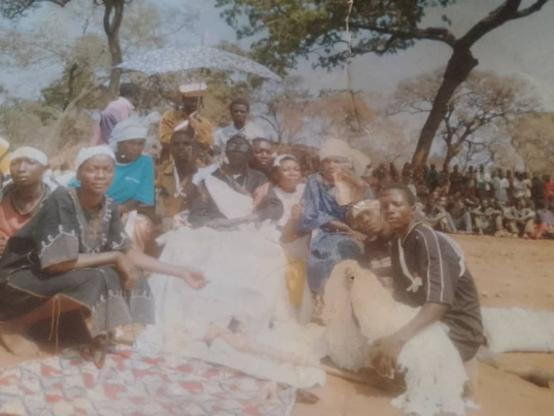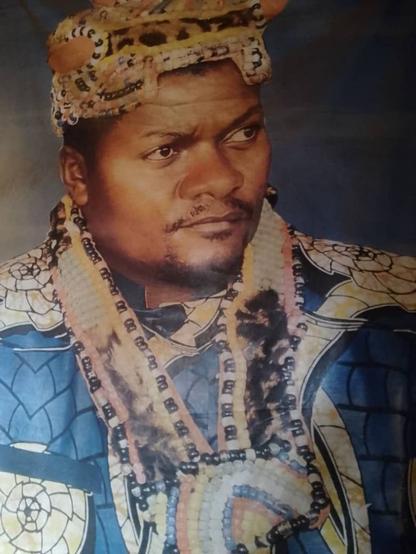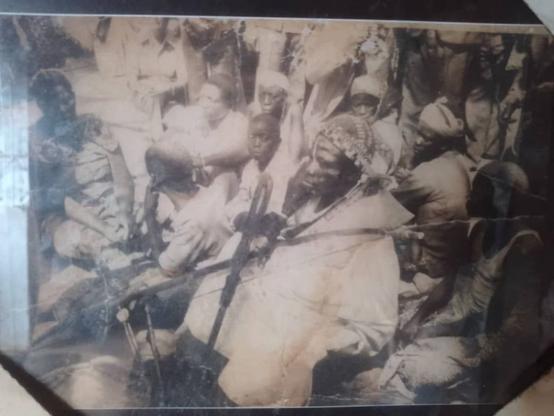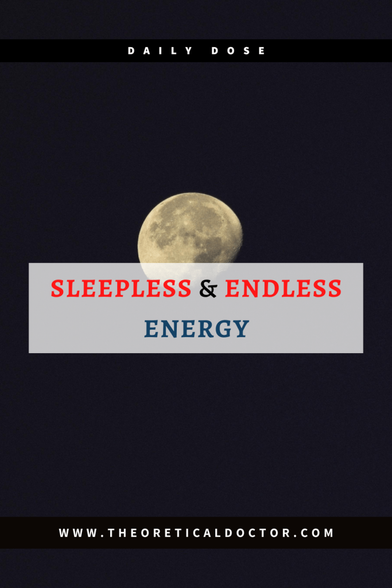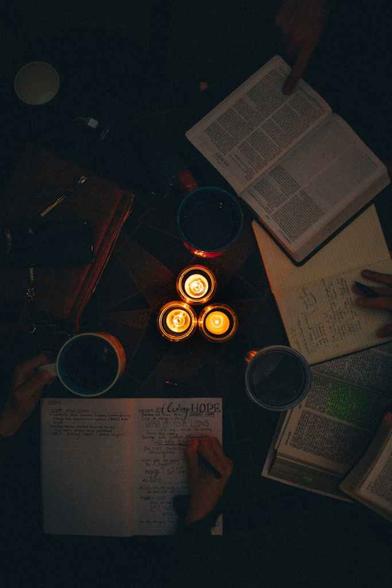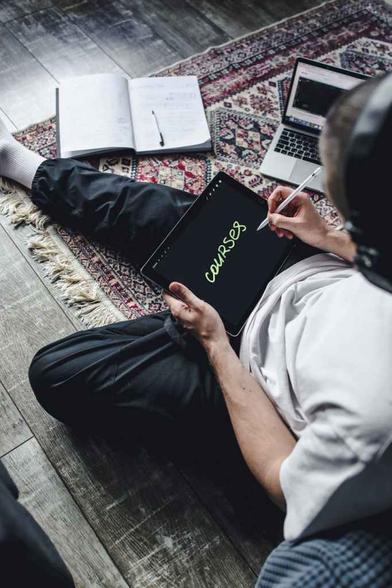Origine du nom « KATANGA »: étymologie
L’origine du nom Katanga est un sujet riche et intrigant, souvent ancré dans l’histoire et les légendes locales de la région. Le nom Katanga tirait son origine du nom du 6e chef de la chefferie Katanga, KANTANGA-TANGA KAMUKUBA, qui avait régné vers les années 1800. Ce chef, surnommé Roi du cuivre, était un personnage influent, reconnu pour son autorité sur le grand-Katanga, avec pour résidence principale à LUBUSHA (aujourd’hui LUISHA).
Signification du mot « Katanga »
Le mot « Katanga », issue du nom du chef KANTANGA-TANGA KAMUKUBA, avait une signification symbolique et culturelle forte, traduisant l’abondance, la richesse (particulièrement minière) et la robustesse. Cette interprétation met en lumière non seulement l’importance historique du cuivre dans la région, mais également la puissance politique et économique de la chefferie Katanga à cette époque.
Les relations avec M’siri et le mariage royal
Les Yeke, sous l’impulsion de M’siri, se sont installés sur les terres des Sanga, un groupe ethnique autochtone qui exerçait une certaine autorité sur la région riche en ressources naturelles. Face à l’hostilité des Sanga, M’siri a utilisé des alliances stratégiques pour consolider son pouvoir. Parmi ses alliances, son mariage avec la fille du chef KANTANGA-TANGA KAMUKUBA est particulièrement significatif.
Le chef KANTANGA-TANGA KAMUKUBA, symbolisait l’importance économique et culturelle de la région en raison de ses abondantes ressources en cuivre. En épousant sa fille, M’siri non seulement s’est allié à une figure influente de la région, mais il a aussi adopté et transformer le nom « kantanga-tanga » en « Katanga », consolidant l’identité de l’actuel province du Grand Katanga.
Les chefs Katanga, dont la chefferie a donné son nom à l’actuel province du Grand-Katanga, a été le premier à exploiter les mines de cuivre de manière artisanale. Cette exploitation, menée avec des techniques indigènes, a permis à la chefferie de prospérer bien avant l’arrivée de colonisateurs. La renommée chefferie Katanga comme centre métallurgique remonte donc à une période où les échanges locaux et régionaux étaient florissants.
Lorsque M’siri, un chef d’origine tanzanienne, est arrivé dans la région, il a cherché à établir son pouvoir sur les terres de basanga tout en s’intégrant dans la structure politique et économique préexistant. Sa stratégi,e basée sur des « traités d’amitié* avec le chef Katanga et d’autres chefs, a permis à M’siri d’asseoir son autorité tout en respectant la suprématie économique et politique du Chef Katanga.
La chefferie Katanga, reconnue comme la première à avoir exploité les cuivré avant la colonisation, joue un rôle historique et culturel essentiel dans l’exploitation des ressources minières de la région. En tant que signataire de plusieurs accords avec les Colons belges, la chefferie avait légitimé l’exploitation de ses ressources. Ainsi, les entreprises qui exploitent les cuivrés dans le grand-Katanga bénéficient des ressources dans la terre et des droits traditionnels de la chefferie. Il est donc juste qu’elles versent une redevance en retour.
L’ordre successoral du sultanat de la dynastie KATANGA
L’ordre successoral de la chefferie Katanga suit un principe particulière basé sur la primogéniture, qui privilégie des héritiers masculins à travers une lignée matrilinaire. Cette règle permet la transmission du pouvoir au petit-fils par l’entremise de sa mère ou de son grand-père maternel.
Voici l’ordre successoral des chefs de la dynastie Katanga :
1. Katanga MUKENGE
2. Katanga KOMBO KOMBO
3. Katanga LUBAKILA
4. Katanga KIPISU
5. Katanga TOLOKA
6. Katanga KAPULULU (Kantanga-tanga kamukuba : depuis 1800)
7. Katanga KIFUMBE
8. Katanga LUMPEFU
9. Katanga KYANANA Pierre (1925-1977): célèbre pour ses nombreuses négociations avec les Colons belges et fondateur de l’actuel dynastie Katanga. Il avait créé le village Katanga en 1948 (la capitale de la chefferie).
10. Katanga PEPENGWE Albert (1977-1986)
11. Katanga NDELENI Ernest (1986-2002)
12. Katanga KIBOMBE Eugène (2002-2021)
13. Katanga MUKINDA John
Cette lignée témoigne d’une gestion dynastique à la fois traditionnelle et adaptée aux changements socio-politiques, notamment durant la colonisation belge et l’époque contemporaine.
Les donneurs de pouvoir dans la chefferie Katanga
Dans la chefferie Katanga, les donneurs de pouvoir jouent un rôle central dans l’intronisation du roi, la préservation et la transmission des us et coutumes traditionnelles. Ces figures d’autorité, issues des Balemba, sont les gardiens des valeurs culturelles et spirituelles locales, ayant un lien direct avec les rites d’investiture et les pratiques coutumières. Le 13e roi de la chefferie, John Katanga MUKINDA Kyanana 2, est issu de ce lignage prestigieux.
Les 6 chefs de terre, piliers de la tradition
1. Mwanakulema
• Rôle : chef de terre au sud de la chefferie Katanga
• Responsabilité : veille sur la gestion et l’organisation coutumière de sa région.
2. NSUMBA NAMA:
• Rôle : chef de terre au centre de la chefferie
• Responsabilité : assure le maintien de l’autorité traditionnelle au cœur du territoire.
3. SHINANGWA
• Rôle : Chef de terre à l’Est de la chefferie, près du lac Tshangalele.
• Responsabilité : gère les affaires culturelles et coutumières de la région Est.
4. NSUKUMA
• Rôle : donneur de pouvoir près du roi Katanga.
• responsabilité : confère l’autorité et participe directement au cérémonie d’intronisation du roi.
5. Mushikatala
• Rôle : Chef de terre également situé autour du lac Tshangalele.
• Responsabilité : participe aux rituels liés à la terre et à la gestion des ressources naturelles.
6. MUSHINGE
• Rôle : chef de terre et guérisseur traditionnel du groupement.
• Responsabilité : porte un rôle spirituel essentiel, garantissant la santé physique et spirituelle de la communauté.
Ces chefs incarnent la continuité des traditions et forment un lien sacré entre le roi et la population, tout en assurant une organisation harmonieuse au sein de la chefferie Katanga.
Supression du statut de la chefferie et la délocalisation du siège vers KIBANGU, village du groupement KISUNKA
La situation du groupement Katanga illustre les tensions sociales et politiques qui avaient découlé de la gestion des ressources naturelles et des structures de gouvernance traditionnelle. La chefferie Katanga riche en cuivre, cobalt, et doté d’une agriculture prospère, était historiquement organisé autour de chefferies de BALEMBA et BATEMBA. Cependant, en 2002, la décision du commissaire de district de retirer au grand Katanga son statut de chefferie et de le rattacher à KIBANGU, dans le groupement KISUNKA sous l’autorité de KABOTO comme chef de secteur, a déstabilisé la puissante chefferie Katanga.
Cette délocalisation a non seulement entraîné un sentiment d’injustice chez les populations autochtones, mais a également alimenté des conflits entre ces dernières et les autorités administratives, notamment le chefs de secteur KABOTO et le commissaire de district. Cette épisode réflexe les luttes d’influence entre les structures traditionnelles et administratives modernes, où des décisions mal communiquées ou perçues comme arbitraires peuvent exacerber les tensions communautaires.
Quelques accords notables impliquant la chefferie Katanga
La puissante chefferie Katanga, situé dans l’actuelle République démocratique du Congo, précisément dans la province du Haut-Katanga, a joué un rôle central dans l’histoire coloniale Belge, en raison de ses vastes ressources minières, notamment de cuivre, de cobalt et d’autres minerais précieux Les rois ou chefs traditionnels du groupement Katanga ont effectivement eu des interactions complexes avec les colons belges, marquées par des accords qui reflètent à la fois la collaboration et les tensions de l’époque coloniale :
1. Accord avec l’Union Minière du Haut-Katanga (UMHK)(1906): Cette entreprise belge a signé des accords avec les chefs locaux pour sécuriser l’accès aux terres et aux ressources minières. ces accords incluaient parfois des compensations financières ou matérielles pour les communautés locales, mais ces compensations étaient souvent déséquilibrées en faveur de Colons.
2. Accord avec l’université de Liège
3. Accord avec l’université de Moss : cet accord est moins documenté historiquement
3. Accord de Fleurac pour le projet Mangobo : un accord qui fait référence à des initiatives liées à l’agriculture, aux infrastructures et à l’exploitation minière.
Ces accords reflètent le mélange de diplomatie et de coercitation utilisées par les Colons belges pour asseoir leur contrôle sur l’étendue de la chefferie Katanga.
Situation géographique de la chefferie Katanga
La chefferie Katanga est située dans une région stratégique et varié des Sud-Est de la République démocratique du Congo.
Voici un résumé de ses limites géographiques:
1. Au Nord : la chefferie Katanga est délimitée par le groupement KYEMBE, séparée par la rivière KAMONA BAFUIKA.
2. Au Nord-Est: elle partage ses frontières avec le groupement MULANDI, marquée par la rivière KALONGA en direction de KAPEYA.
3. À l’Est : la rivière LUFIRA, qui est un important affluent du fleuve Congo et à l’origine du lac artificiel Tshangalele (formé par le barrage hydroélectrique de Mwadingusha), sépare la chefferie Katanga des groupements MPOYO et TENKE.
4. Sur le lac Tshangalele : les limites sont partagées avec le groupement KISUNKA, délimitées par la rivière kitanga près de Yuka.
5. Au Sud-Est : la chefferie est séparée du groupement KILUBA par une distance de 45 km jusqu’à la frontière avec la Zambie.
6. Au Sud-ouest : Elle est délimitée par le groupement MWABESA, avec la rivière NGWEMASHI comme frontière.
7. Au Sud : la frontière internationale entre la République dtémocratique du Congo et la Zambie sépare la chefferie Katanga du territoire du chef MUSAKA en Zambie.
Ces limites montrent la diversité de l’environnement naturel (rivières, lac, frontières internationales) qui entoure la chefferie, tout en soulignant son importance régionale.
Le relief de la chefferie Katanga
Le relief de la chefferie Katanga est marqué par une série de montagnes et Collines riches en ressources naturelles, en particulier en cuivre, cobalt et or. Ces gisements font de la chefferie une région d’importance mondiale pour l’exploitation minière.
Voici les principales montagnes et collines de la chefferie Katanga :
1. Mwana Kolwe
2. Kamwale
3. Mpumpe
4. Kayuba
5. Kipoi
6. Kileba
7. Kabola
8. Kanshishi
9. Mbola
10. Katekete
11. Kamina Fwitshi
12. Kimapongo
13. Nsase
14. Gidera
14. Kibanda
16. We Pala
17. Kyandwe
18. Kinkombwa
19. Kisala
20. Luisha
Ces reliefs abritent des réserves minières estimées exploitables sur une durée de plus de 500 ans, ce qui renforce le rôle stratégique de la chefferie Katanga dans le développement économique local, provincial, national et international. Les ressources disponibles dans ces montagnes contribuent également à positionner cette chefferie comme un acteur clé du développement en République Démocratique du Congo.
Hydrographie de la chefferie Katanga
La chefferie Katanga, riche en ressources hydriques, est marquée par la présence d’un lac artificiel et plusieurs rivières qui jouent un rôle essentiel dans la vie des communautés locales, l’agriculture la pêche et la production d’énergie.
A. Le lac Tshangalele
• Description : une partie de ce lac artificiel artificielle se trouve dans la chefferie Katanga.
• villages concernés : KALAPWILA, KATOTO SHINANGWA.
•® Origine : créé par le barrage hydroélectrique de Mwadingusha grâce à la rivière LUFIRA, le lac Tshangalele est une ressource majeure pour l’irrigation, la pêche, et la production d’électricité.
. Les principales rivières de la chefferie Katanga
1. Rivière NGWEMASHI
• localisation : forme une limite entre le groupement MWABESA et Katanga Sud, près du village MWANAKULEMA
• Particularité : délimite les frontières territoriales.
2. Rivière LUPOTO
• Localisation : située au sud de la chefferie, elle prend sa source dans la chefferie kaponda.
• Destination : se jette dans la rivière LUFIRA, qui alimente le lac alimente directement le lac Tshangalele.
3. Rivière SOFUMWONGO
• rôle : alimente directement le lac Tshangalele
• Importance : participe au maintien du niveau hydrique du lac.
4. Rivière LWAFI
• Rôle : verse ses eaux dans le lac Tshangalele
• Impact : essentielle pour l’écosystème aquatique du lac
5. Rivière LUPEMBASHI
• source : située près d’Ipandaula, à proximité de la route Mangombo
• utilisation : son bassin crée des champs marécageux, utilisés pour les villageois du village Katanga
• Destination : se déverse également dans le lac Tshangalele
6. Rivière TANGA
• trajet : traverse la route nationale N°1 (Likasi-Lubumbashi)
• Destination : se jette dans la rivière LUFIRA.
C. importance de l’hydrographie
• Ces ressources hydriques soutiennent l’agriculture (champs marécageux), la pêche et l’énergie (barrage de Mwadingusha)
• Elles définissent également des frontières naturelles entre les groupements et influencent les activités socio-économiques locales.
Activités pratiquées dans la chefferie Katanga
La chefferie Katanga, située dans une région bénie par la nature, se distingue par la diversité de ses activités économiques, principalement centrées autour de l’agriculture, de l’élevage, de la pêche et de l’exploitation minière artisanale.
1. Agriculture : grâce à un sol extrêmement fertile, l’agriculture constitue une activité vitale pour la population autochtone. Les principales cultures comprennent :
• Le maïs et le manioc, qui sont les aliments de base.
• Les arachides, les haricots, les gombos, la canne à sucre…., qui complètent l’alimentation et apportent des revenus supplémentaires.
2. Élevage : l’élevage est également une activité importante avec une prédominance de :
• chèvres, cochons et mouton pour la viande et parfois le commerce.
• poules, dindons, pintades et les canard, qui jouent un rôle clé dans l’alimentation locale et les petites entreprises rurales.
3. Pêche : avec des ressources aquatiques comme le lac Tshangalele, des étangs et des rivières telles que Lufira et lupoto, une partie de la population vit de la pêche. Cette activité assure un approvisionnement constant en Poissons, une source essentielle des protéines.
4. Exploitation minière artisanale : le sous-sol riche de la chefferie katanga regorge des ressources naturelles, notamment des gisements des cuivres. Cela a conduit au développement de :
• Creusages artisanaux à ciel ouvert, où les habitants extraient manuellement les minerais.
• Travail dans les usines d’extraction, en particulier celles opérées par des entreprises chinoises.
Ces activités traduisent une économie diversifiée, bien que largement dépendante des ressources naturelles. cependant, pour garantir un développement durable, il est crucial de gérer ces ressources naturelles équilibrée, tout en investissant dans des infrastructures et des services sociaux pour améliorer des conditions de vie des habitants.
Les personnages influents du sultanat katanga depuis 1925
voici un aperçu des personnalités influentes de la chefferie Katanga depuis 1925, qui ont marqué l’histoire de cette chefferie, de la province et du pays.
1. Katanga KYANANA Ngoie Pierre
• Président du sénat sous le gouvernement Tshombe durant la sécession du Katanga.
• Roi et figure politique majeure du Katanga à l’époque de l’indépendance et de la crise congolaise.
2. Mwandwe Joseph
• Directeur de l’antenne katuba
• Deux fois député pour le compte du Grand conseil, jouant un rôle important dans la représentation politique
3. Mwengwe Christophe : deux fois député pour le compte du Grand conseil, contribuant aux débats et décisions politiques
4. Pasteur Esaya Mulupenga Ezéchiel : influence spirituelle et social dans la région.
5. Denis kashoba père : président de L’IBABAK (association très significative de la région)
6. Mutakula Tabataba
• Père biologique du roi Katanga KYANANA Ngoie Pierre,
• figure historique clé de la lignée royale.
7. Sapata Ngyemshi : notable influent dont l’histoire mérite davantage des détails.
8. Kipai : forgeron expert à l’usine traditionnelle du cuivre dans les mines historiques de Lubusha, symbolisant le patrimoine industriel de la chefferie Katanga.
9. Kirimba Myenge : chargé de délimiter les frontières du sultanat Katanga, rôle stratégique dans la gestion territoriale.
10. Curiobwa : juge au tribunal coutumier, garant des traditions et de la justice coutumière.
11. Notable BUSHIMBWA : fidèle serviteur du sultanat du royaume Katanga.
12. Notable MASHAMO LUSABA : responsable de l’inhumation des membres de la famille royale.
Le cimetière royale KIFUMPA est situé à 1 km du village Katanga, tandis que les autres habitants sont inhumés au cimetière KUNDWE.
13. Notable KIPOI et KAMYABUKOKO : responsables du transport du roi Katanga à travers le KIPOYI (fauteuil du roi).
14. Denis kashoba Kabonshi
• Député national et provincial à plusieurs reprises,
• Auteur de plusieurs ouvrages dont « Protection du contribuable en droit congolais : les limites aux pouvoirs exorbitants de l’administration fiscale de la RDC » publié aux Presses Universitaires de Lubumbashi en 2018.
Ces figures ont joué un rôle fondamental dans le développement politique, culturel, et sociale du groupement Katanga et du pays leur contribution est essentielle pour comprendre l’histoire de cette région.
#dailyprompt #dailyprompt2076 #dailyprompt2081 #dailyprompt2084 #dailyprompt2089 #dailyprompt2096 #dailyprompt2097 #dailyprompt2099 #dailyprompt2101 #dailyprompt2102 #dailyprompt2104 #dailyprompt2105 #dailyprompt2107 #dailyprompt2108 #dailyprompt2109 #dailyprompt2111 #dailyprompt2114 #dailyprompt2115 #dailyprompt2119 #dailyprompt2120 #dailyprompt2122 #dailyprompt2125 #dailyprompt2129 #dailyprompt2134 #dailyprompt2142 #dailyprompt2143 #dailyprompt2146 #dailyprompt2167 #Morebooks #VictorDjimbila



